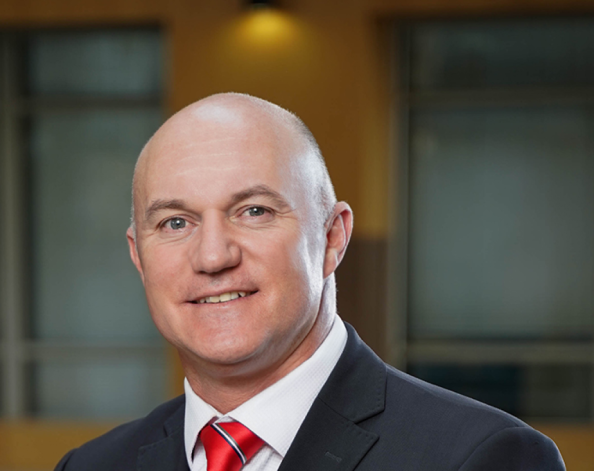In this episode of The Other Side, two veterans of their industries, South Africa Growthpoint Properties CEO Estienne de Klerk and Edcon CEO Grant Pattison, join David Smith, Retail Analyst at Investec, in a frank discussion of the issues facing the sectors.
Despite the disruption caused by Covid-19 and the lockdown, there has been a level of co-operation between landlords and retailers that maybe hasn’t been evident in other countries. However beyond the Covid-19 pandemic, the sectors face an uncertain future, both because of the blow to the economy and because of the acceleration of trends such as shopping online and working from home.
They talk us through the traumatic period when lockdown was announced, through to current times as restrictions have been steadily lifted. They discuss changing trends in consumer behaviour, the state of SA’s middle class, the tourism industry and the role of government, while trying to understand what the retail and property game will look like once Covid-19 is over.
Listen to the full discussion on the go
You can listen to the full discussion between Investec's Retail Analyst David Smith, Growthpoint CEO Estienne de Klerk and Edcon CEO Grant Pattison.
Subscribe to Investec Focus Radio SA
Highlights of the discussion:
On responding to the lockdown measures announced in March
Apart from shutting things down operationally, landlords and retailers needed to engage and discuss ways to get through the lockdown collectively. “Many of the retailers couldn’t pay rent and because of the kind of liquidity challenges that resulted, this meant that the industry had to react,” says de Klerk. “I think as a country, we’ve done that reasonably well. I think that the pain was shared collectively by all parties.”
For Pattison, it was a particularly traumatic phase, as it pushed Edcon into a business rescue process that eventually saw new buyers for most of the business. “However, once we made the big decision and moved into business rescue, we were able to focus on reopening the business post the [hard] lockdown, and then operating in this lockdown phase, which was challenging,” notes Pattison.

In South Africa, I get the impression that shopping is still a bit of a social trend and remains such. We can see that from the return of the footfall in our shopping centres
On getting back to pre-pandemic levels
Says de Klerk: “Some of our shopping centres are back up at ninety-odd percent footfall and, we are seeing that trade is reasonably normalised. But it varies among some of the retailers. Certain sectors of food have performed pretty well in this environment. The message is that it is slowly coming back, but it’s not quite where it used to be.”
Pattison agrees. “Larger and more upmarket malls have done worse than lower-income rural. There’s a definite trend there and anyone who goes to one of the big malls will immediately notice the low footfall in those malls,” he notes.
“There’re some categories that have performed superbly, like cellular. And then you would, as you would guess casual wear, sweat pants, all the categories which we use at home have done quite well,” he adds. “The big debate will be about the extent to which the consumer is permanently changed.”

When the consumer was able to spend freely, and we saw significant growth on a year-on-year basis, the whole food chain did well. In more recent times, the weakness in the SA consumer resulted in unique challenges for both landlords and tenants
On how the lockdown has accelerated the switch to e-commerce
“I think the biggest thing we learned by the way during the e-commerce phase, the lockdown phase, was that the physical retailers are terrible at e-commerce,” says Pattison, “Whereas the dedicated online retailers, I think, handled it superbly.”
While there is likely to be swing towards more online shopping, de Klerk reckons this won’t be as pronounced as in developed markets. “In South Africa, I get the impression that shopping is still a bit of a social trend and remains such, and we can see that from the return of the footfall in our shopping centres. However, there will definitely be an impact over time.”
Pattison believes the experience has been different across categories, with categories like non-branded clothing still favouring the in-store experience. However, he adds: “There are categories where the retailers are just disappearing. Think of how if you had to go and buy a major appliance or electronics item, the choice of retailers is declining fast and their ranges in stores are declining fast. Whereas you go online and you just inundated by anything you want, it will be in your house a week later.”

I think the biggest thing we learned by the way during the e-commerce phase, the lockdown phase, was that the physical retailers are terrible at e-commerce.
On the outlook for the coming years
De Klerk points to issues like the oversupply in the market and the excess of parking space that landlords have had to deal with in the future as people work from home or use ride-hailing services instead of driving to work and to shop.
However, of bigger concern he says, is the state of the economy. “The economic impacts that we are facing in this country at the moment, far outweigh any of these trends,” he says. “If the economy is contracting by 8% to 10%, then that plays out across the real estate space and those impacts are significantly more.”
Rising rates and taxes are also an issue. “Rates and taxes over the past eight years, have seen a 320% increase. CPI on the same period has only risen by about 78%. And increasingly, we [landlords] are having to provide our own services,” he explains.
“The perception that rental has grown exponentially over the past 10 years isn’t actually the net rental that the property owners are receiving, but it’s as a result of this massive increase in utilities and in rates and taxes.”
Pattison worries about the erosion in incomes that Covid-19 has accelerated. “The real thing that worries me is that it’s accelerating a decline in the middle class,” he says. “And so, we’ll worry about the coronavirus for a few more months and then we’ll be faced with the reality that all the retailers who are servicing and have their business model based on the middle class, are going to have a hard time.”
Mobile and Media
Panelists
- Shameel Joosub, Vodacom CEO
- Raymond Ndlovu, CIVH CEO
Moderator: Reagile Moatshe, Head: Supplier Finance (a division of Specialised Finance – Corporate and Institutional Banking)








